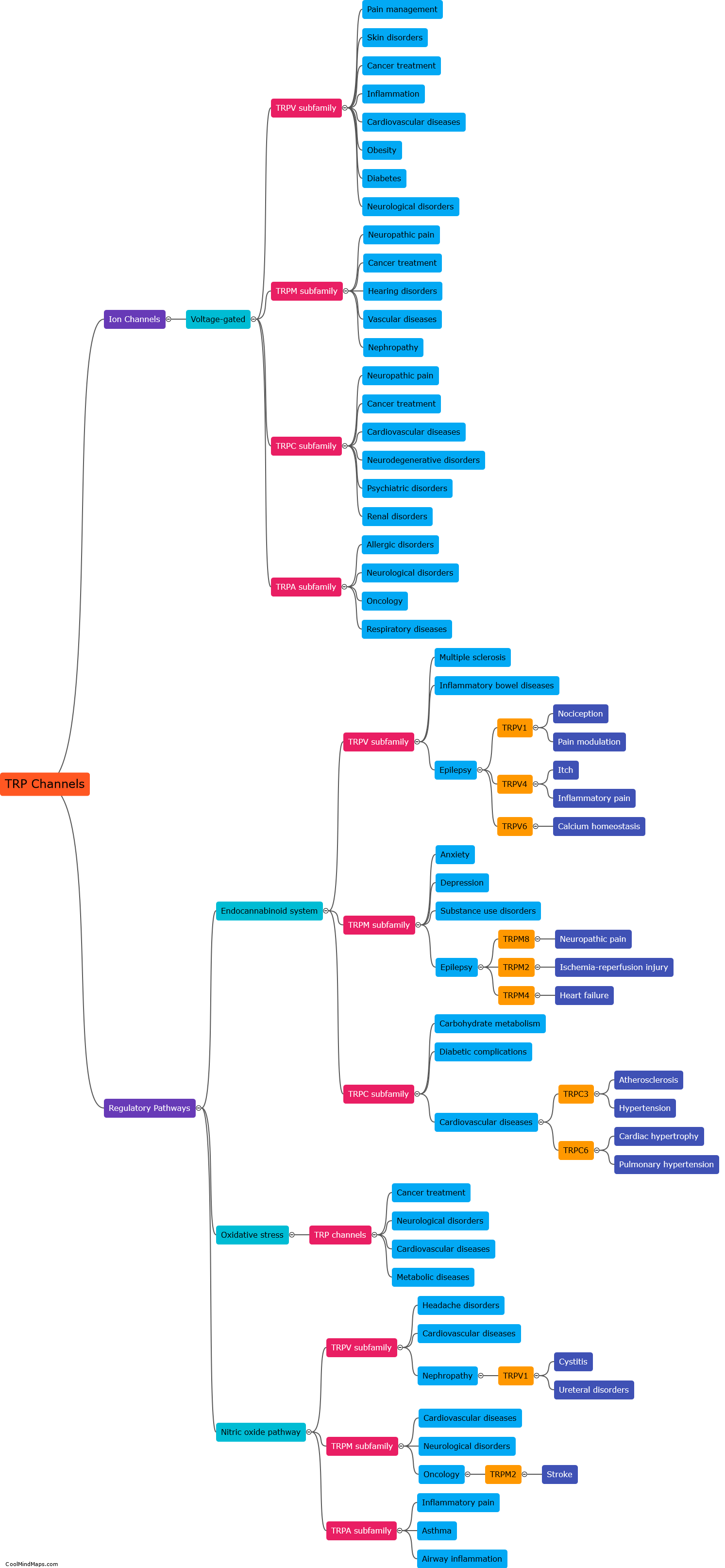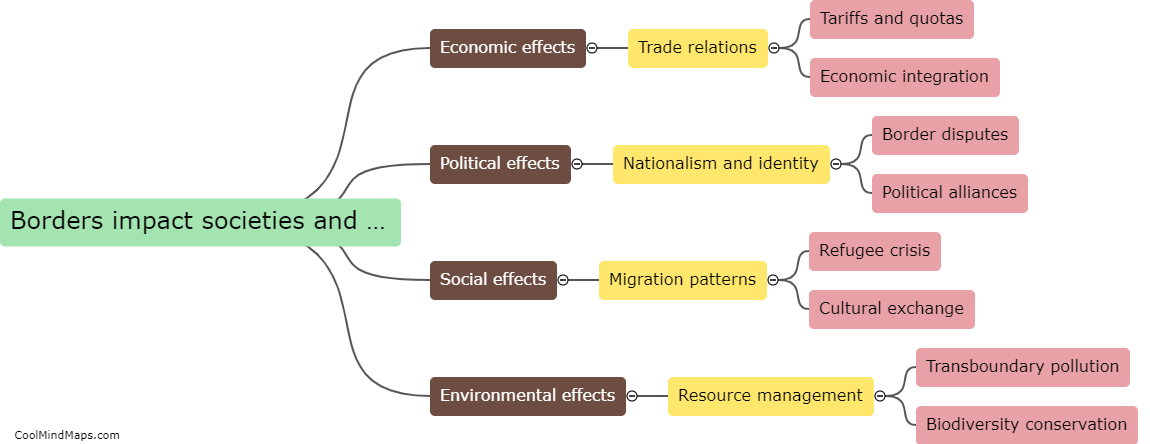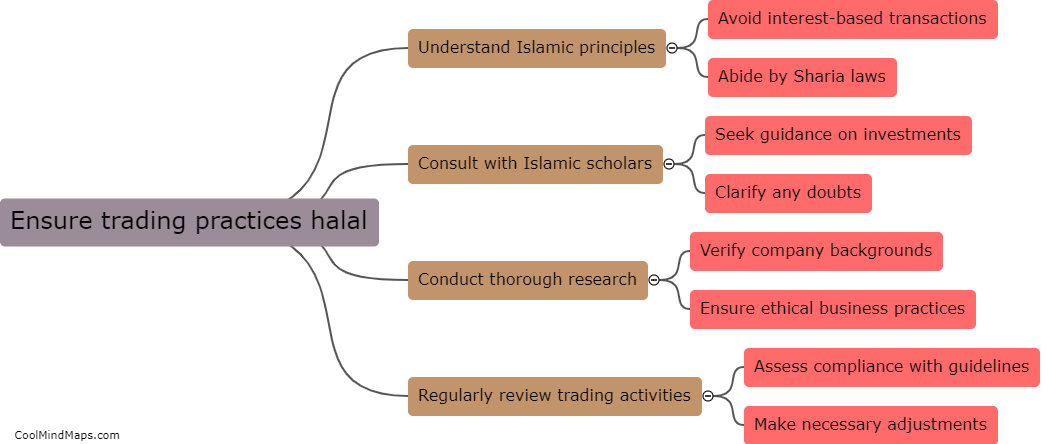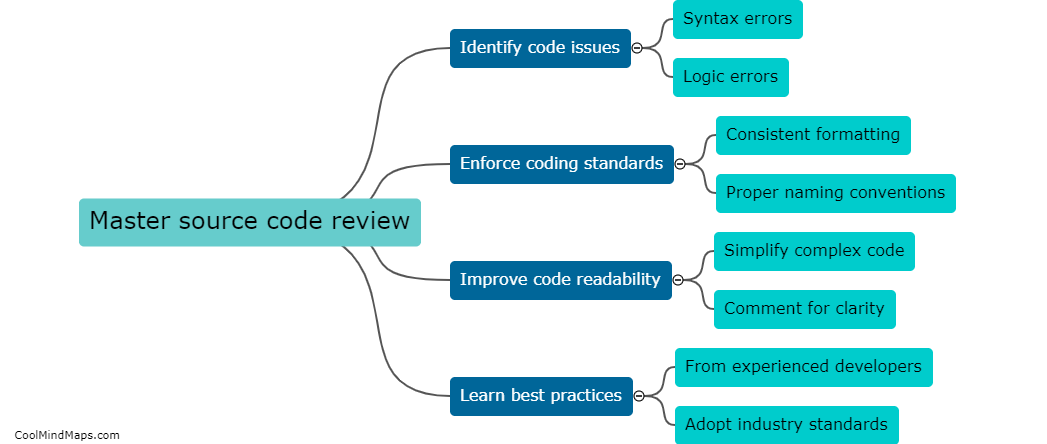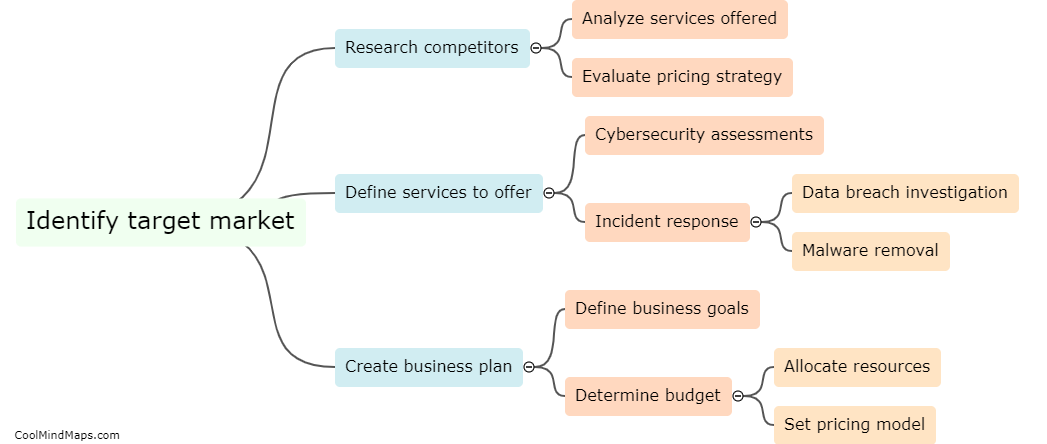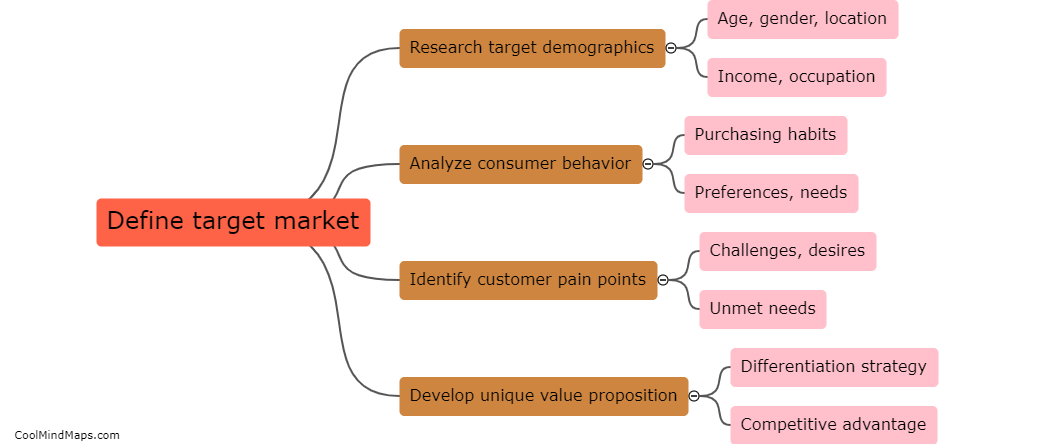Are there any restrictions on trading in Islam?
In Islam, trading is not inherently restricted, but there are guidelines that must be followed to ensure that transactions are conducted in a fair and ethical manner. Islamic law, or Shariah, prohibits engaging in transactions that involve interest (riba), uncertainty (gharar), gambling (maisir), or the exploitation of others. Additionally, it is important for traders to conduct their business dealings honestly, communicate clearly, and adhere to the principles of justice and fairness in all transactions. Overall, while trading is not forbidden in Islam, adhering to these principles is essential for conducting ethical and halal (permissible) business transactions.

This mind map was published on 26 February 2024 and has been viewed 122 times.


